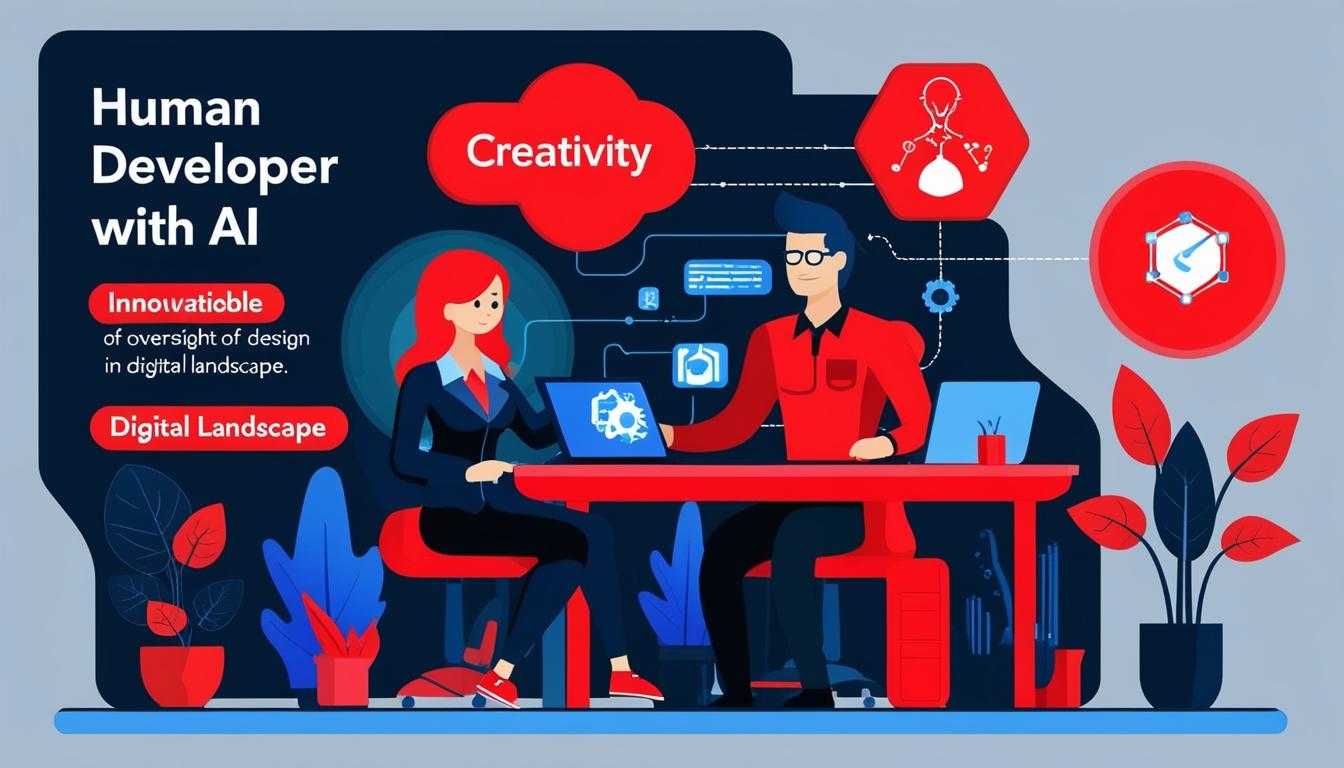The rapid progression of artificial intelligence (AI) technologies has prompted discussions within the business community regarding the potential for machines to ultimately replace human developers. Despite AI's significant role in enhancing productivity, automating tasks such as code generation and systems monitoring, experts contend that it cannot substitute the innovation and creativity that skilled engineers bring to the field. Mike Rispoli, a seasoned technology leader and two-time CTO, spoke to CSQ Magazine, stating that while AI tools can automate repetitive tasks and streamline operations, the core functionalities rely heavily on human ingenuity and expertise.
AI is particularly adept at handling low-complexity deployments and debugging, which can drastically reduce development time. However, Rispoli emphasised that these efficiencies are contingent upon a solid technical foundation built by human developers. "True innovation demands human creativity, technical expertise, and an understanding of core engineering principles—capabilities that AI alone cannot replicate," he stated. Thus, C-suite executives must navigate the complexities of digital transformation by capitalising on AI’s strengths while acknowledging the indispensable role of engineers.
The cautionary narrative around the rise and fall of Web3, particularly illustrated by the collapse of FTX and its founder Sam Bankman-Fried, serves as a critical lesson for businesses about the perils of overhyped technological advancements. The incident cast a long shadow over the Web3 landscape, leading to diminished public trust and highlighting the risks associated with unchecked enthusiasm for new technologies. Rispoli cautioned that without stringent governance and accountability measures, companies that overly rely on AI could face similar reputational damage if they fail to set realistic expectations or implement necessary safeguards.
Security concerns also form an essential part of the discussion surrounding AI's integration into business practices. This is especially relevant in sensitive sectors like healthcare, where compliance, security, and confidentiality are paramount. The unpredictable nature of AI outputs—in contrast to traditional software systems—poses significant challenges in auditing and managing data breaches. Rispoli pointed out that the inherent complexities of modern AI systems, particularly large language models (LLMs), make it difficult to trace the flow of sensitive data effectively, leading to potential privacy violations.
Executives are called upon to develop robust policies that dictate the safe use of AI tools, the types of data that can be shared, and methods to mitigate associated risks. Rispoli remarked, "AI can enhance productivity, but without proper governance and human oversight, the security trade-offs may outweigh the benefits." As businesses integrate AI into their frameworks, the need for skilled developers who possess critical thinking and contextual understanding remains vital.
Ultimately, the most successful integrations of AI leverage a collaboration between human insight and machine efficiency. Skilled developers ensure AI systems are designed to align with specific business requirements, comply with industry regulations, and produce reliable outcomes. As Rispoli noted, they also provide checks against unforeseen errors and biases in AI-generated solutions.
Organisations are encouraged to invest in their developer teams, facilitating upskilling and fostering a collaborative culture where AI is viewed as a partner rather than a rival. By doing so, companies can harness the full potential of AI while ensuring that innovation, security, and ethical considerations are not compromised. Reflecting on the experiences gleaned from the volatile Web3 landscape, it is evident that while technology plays a crucial role, the human element remains paramount in steering businesses towards sustainable growth.
Source: Noah Wire Services
